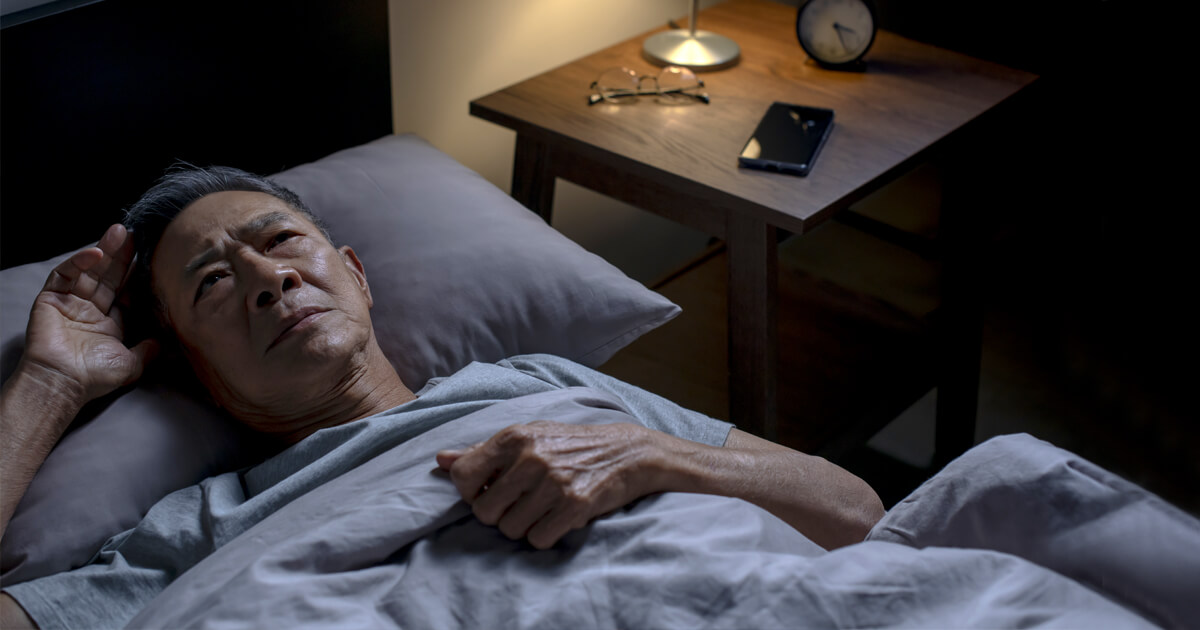Get Better Rest with Sleep Disorder Treatment

If you’re always exhausted, snoring heavily, or tossing and turning at night, your body might be trying to tell you something. Sleep disorders affect millions of people — and often go untreated.*
The pulmonology and sleep medicine teams at AHN Canonsburg Hospital and AHN Jefferson Hospital specialize in diagnosing and treating sleep disorders, so you can get the deep, restful sleep your body and mind need to function at their best.
Common sleep disorders
Some of the most common sleep disorders include:
- Sleep apnea – A condition where breathing stops or gets shallow during sleep because of an upper airway blockage. Sleep apnea can cause loud snoring, restless legs, and falling asleep during the day.
- Narcolepsy – A condition where people have a hard time staying awake during the day and fall asleep very easily, even during important events like work, school, or daily activities. It’s caused by a lack of certain neurotransmitters (chemical signals in the body) that keep muscles active and awake.
- Insomnia – Trouble going to sleep, staying asleep, or both. Insomnia can be triggered by things like stress, depression, and too much caffeine or alcohol.
You may be more likely to develop a sleep disorder based on inherited traits or health factors, such as:
- A large neck or a small or narrow jaw
- Obesity or weight issues
- A family history of insomnia
“The traits we inherit from our families — in combination with our own lifestyle behaviors — impact the quality of our sleep,” said Christian Kyung, MD, pulmonologist at Jefferson Hospital. “At AHN, we look at each patient’s full, unique picture in order to treat sleep disorders and help them improve their routines.”
Diagnosing and treating sleep issues
If you’re struggling with sleep and are referred to a specialist at Canonsburg Hospital or Jefferson Hospital, your AHN care team will start with a sleep study to understand what’s causing your sleep trouble.
There are a few types of sleep studies:
- An at-home test using a sleep machine that is sent to your house
- An in-lab study for closer observation based on other health issues you may have
- An in-lab PAP (positive airway pressure) titration study, which tests what level of airway support you need to reduce sleep apnea symptoms
If you have symptoms of narcolepsy, your doctor may do a multiple sleep latency test (MSLT) to measure how quickly you fall asleep during the day.
Once your results are in, AHN sleep specialists will work with you to find the best treatment option. They may recommend:
- A CPAP (continuous positive airway pressure) or BiPAP (bilevel positive airway pressure) machine to help you improve nighttime breathing
- A mouth guard to keep your airway open during sleep
- Weight loss medication
- Cognitive behavioral therapy (CBT) for insomnia to manage thoughts that keep you from sleeping
Building a better sleep routine
Your sleep habits matter. Many people lose sleep because of daily stress or challenges.
“Your sleep reflects your day,” said Dr. Kyung. “Work stress, screen time, or emotional strain — it all follows you into bed.”
It may be tough at first, but with practice, you can build healthier sleep habits by:
- Moving your body – even a short walk can lower stress
- Turning off screens at least one hour before bed
- Limiting caffeine during the day
- Keeping naps short (under 30 minutes). Naps are okay as long as they don’t prevent you from sleeping at night.
AHN sleep specialists can give you more tips to address sleep deprivation that are tailored to your specific lifestyle.
Better sleep starts here
You don’t have to be tired all day or struggle to sleep at night. AHN Canonsburg Hospital and Jefferson Hospital’s pulmonology teams are here to help you sleep better. Learn more about your treatment options for sleep disorders.
Source: Extent and Health Consequences of Chronic Sleep Loss and Sleep Disorders. ncbi.nlm.nih.gov.
About Christian Kyung, MD
Dr. Kyung treats patients for asthma, lung cancer, COPD, and other breathing disorders. He is experienced in performing routine bronchoscopy, transbronchial biopsy, and EBUS screenings. He is also an expert in sleep testing, evaluation, and therapies to help patients achieve better sleep. He practices out of AHN Jefferson Hospital.
At AHN Center for Sleep Medicine, we help you breathe easier and sleep better. More than 60 million Americans experience physical or mental issues because of sleep problems. We offer advanced technology to diagnose and treat sleep disorders to help you get more restful, restorative sleep at night.

